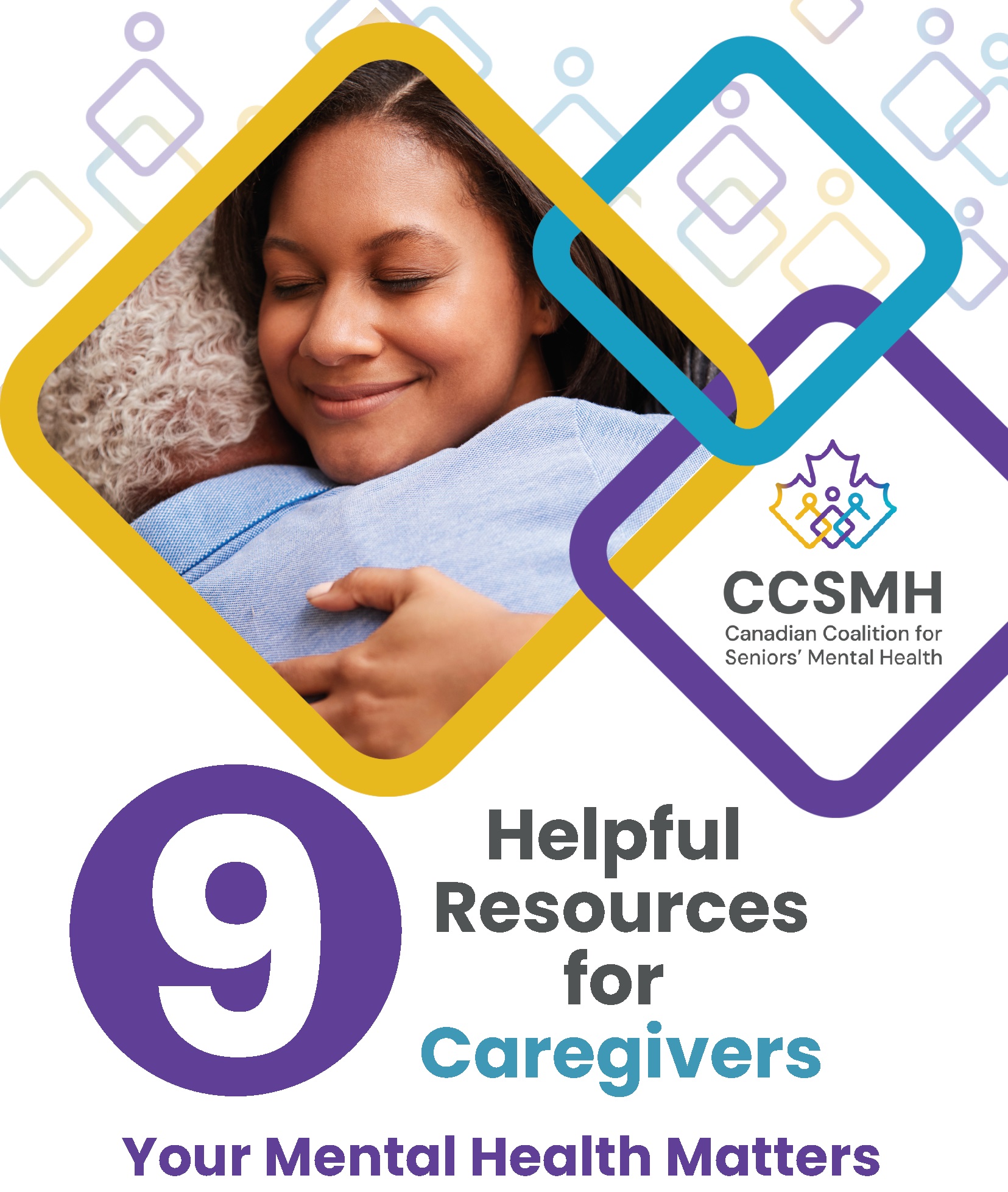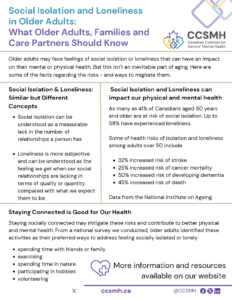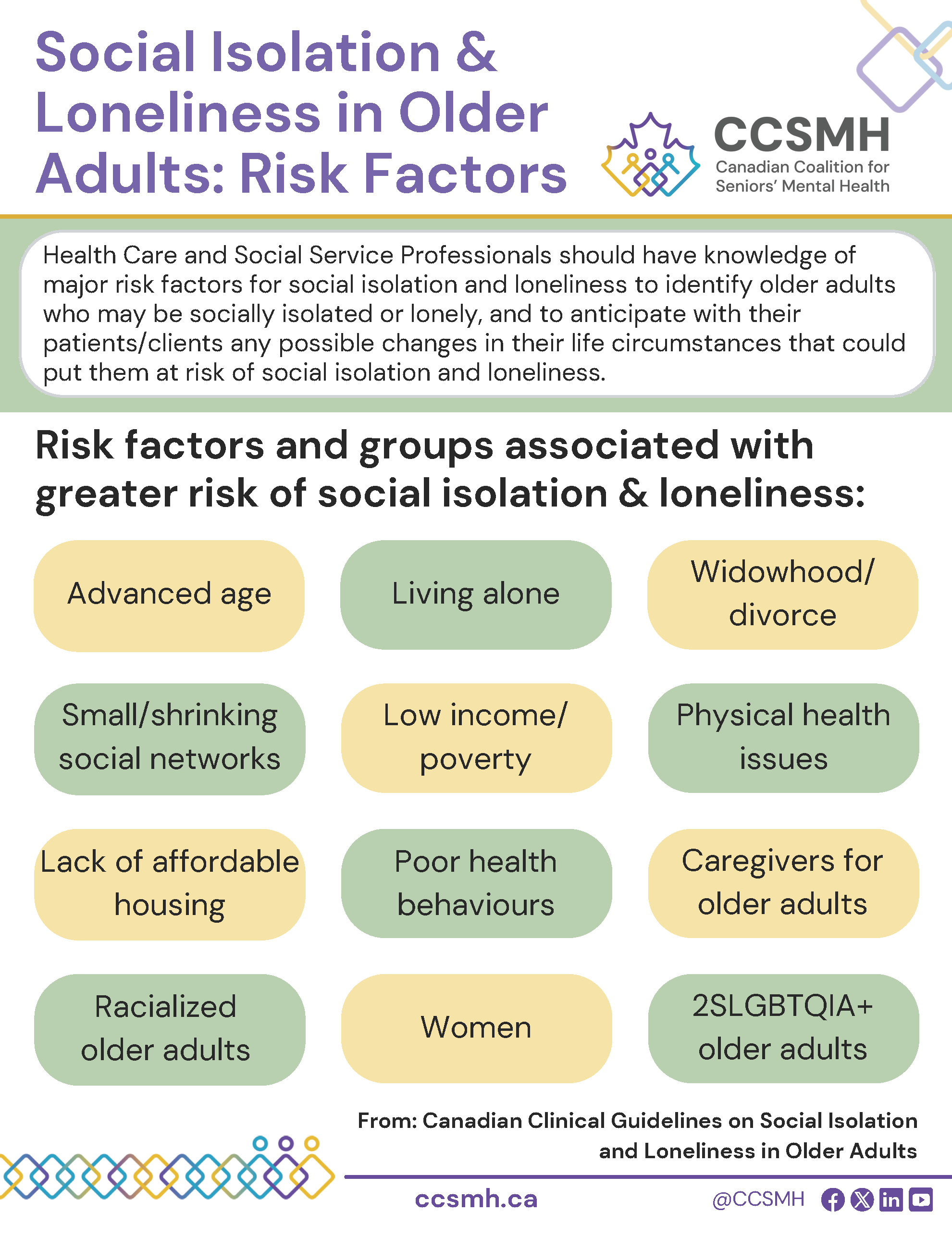Social Isolation and Loneliness – Older Adults and Care Partners
Clinical Guidelines
Discover the first guidelines on social isolation and loneliness in older adults.
For Health Care Professionals
Find clinical tools and resources to support your patients or clients.
Key Findings
Discover our research.
Working together, we can address the risk by building social connections.
Growing older brings many transitions. Older adults may face feelings of isolation or loneliness that can have an impact on their mental or physical health. However, these are not inevitable parts of aging. Increasingly, staying connected is seen as vital for maintaining mental and physical health as we age.
Quick Facts:
Discover Our Resources

Not sure where to begin?
It’s important to be aware of how we may be at risk of becoming socially isolated or lonely. It’s also important to know how the people we know—spouses, partners, friends, family, neighbours, community members, and professional care partners—may face these challenges.
Download our brochure to learn more about social isolation and loneliness in older adults and share it with your colleagues, friends and family.

Are you a care partner?
Caregiving can be rewarding. Yet, most caregivers experience conflicting feelings of isolation, grief, compassion, joy and overwhelm as they provide care. Learn how to take care of your mental health.

Learn More
Discover additional resources that can help you or a loved one understand social isolation and loneliness.

Discover key takeaways presented in the clinical guidelines
Want to know more about key information presented in the recent Canadian Clinical Guidelines on Social Isolation and Loneliness in Older Adults? Print this resource to have the information on hand during your next visit with a health care or social service provider. You can also learn about important recommendations for health care professionals here.

Learn more about the risk factors associated with social isolation and loneliness
Drawn from the guidelines, this infographic is a helpful at-a-glance information sheet about the risk factors and groups associated with a greater risk of social isolation and loneliness.
Build a Productive and Welcoming Dialogue Through our Conversation Guide for Health Care Specialist Service Providers
Having a conversation about social isolation or loneliness can be difficult, and it is an important step toward improving overall social health. Use our guide to help open communication, build trust and facilitate a productive dialogue.
Read our article on social isolation and loneliness
Read the Op-Ed written by Dr. David Conn, CCSMH Co-chair and Claire Checkland, CCSMH Executive Director.
Read our Global Heroes article
Read the article which outlines the extent and risks related to social isolation among older adults.
